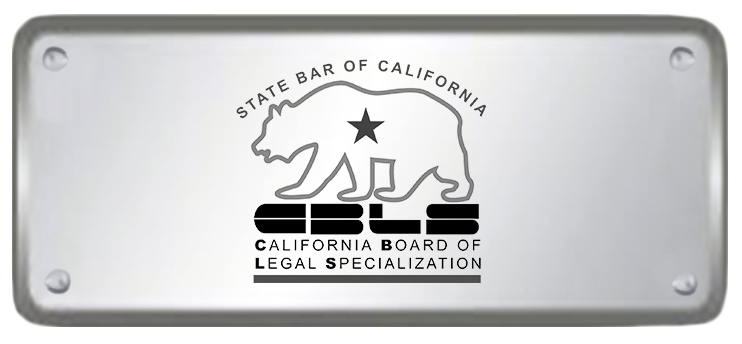TRUST ACCOUNTING IN CALIFORNIA
Trust accounting in California refers to the financial management and reporting associated with trust administration. A trust is a legal arrangement where a trustee holds assets on behalf of beneficiaries, with the trustee being responsible for managing and distributing those assets according to the terms of the trust document. In California, trust accounting is governed by various laws and regulations, including the California Probate Code, which sets forth the rules and requirements for trust administration.
What is Trust Accounting?
It’s important to note that trust accounting in California can be complex, and the specific requirements may vary depending on the circumstances and the terms of the trust. Consulting with the experienced trust attorneys at Antonyan Miranda or seeking professional accounting assistance can help ensure compliance with the relevant laws and regulations, and properly fulfill the trustee’s responsibilities.
Here are some key aspects of trust accounting in California:
FIDUCIARY DUTIES:
Trustees have fiduciary duties to act in the best interests of the trust beneficiaries. This includes managing trust assets prudently, avoiding conflicts of interest, and making decisions in accordance with the trust document and applicable law.
RECORD KEEPING:
Trustees are required to keep accurate and detailed records of all trust transactions, including income, expenses, assets, and distributions. These records should be organized and maintained for a specified period, typically several years, and made available for beneficiaries and interested parties to review if necessary.
SEGREGATION OF TRUST ASSETS:
Trust assets must be kept separate from the trustee’s personal assets. This means maintaining separate bank accounts and investment accounts specifically for the trust. Commingling trust assets with personal assets is generally prohibited.
INCOME AND EXPENSES:
Trustees must account for all income earned by the trust, such as interest, dividends, and rental income. They are also responsible for tracking and documenting all trust-related expenses, such as property maintenance, taxes, and administrative costs.
DISTRIBUTIONS:
Trust accounting involves tracking and documenting all distributions made from the trust to beneficiaries. This includes regular distributions as well as any special or discretionary distributions as outlined in the trust document. Proper documentation is essential to ensure transparency and accountability.
REPORTING:
Trustees are required to provide periodic accounting reports to the trust beneficiaries, informing them of the trust’s financial status, transactions, and distributions. The frequency and level of detail required may vary depending on the trust document and the beneficiaries involved. In some cases, trustees may also be required to file certain reports with the court or other governmental agencies.
What Kind of Problems Can Arise in Trust Accounting?
Several problems can arise in trust accounting, which can lead to legal disputes, financial issues, or breaches of fiduciary duties. Consulting with the trust and estate attorneys at Antonyan Miranda can help trustees navigate these potential challenges and ensure compliance with legal obligations. Here are some common problems that may arise:
INACCURATE RECORD KEEPING:
Failing to maintain accurate and detailed records of trust transactions can lead to confusion, disputes, and potential allegations of mismanagement.
COMMINGLING OF FUNDS:
Mixing trust assets with personal assets, also known as commingling, is a serious problem. It can result in the loss of trust status, potential tax issues, and the breach of fiduciary duty.
FAILURE TO FOLLOW TRUST TERMS:
Trustees have a duty to administer the trust in accordance with its terms. Failing to follow the provisions outlined in the trust document can lead to beneficiary dissatisfaction and potential legal action.
MISMANAGEMENT OF ASSETS:
Trustees have a responsibility to prudently manage trust assets. Mismanagement, such as poor investment decisions or failure to properly maintain assets, can result in financial losses for the trust and potential liability for the trustee.
IMPROPER DISTRIBUTION:
Distributions must be made in accordance with the trust document and applicable laws. Making unauthorized or improper distributions, favoring certain beneficiaries over others, or failing to document distributions properly can lead to beneficiary disputes and potential legal challenges.
FAILURE TO PROVIDE ACCURATE ACCOUNTING:
Trustees have an obligation to provide accurate and timely accounting reports to beneficiaries. Failing to do so can create mistrust, confusion, and potential legal disputes.
BREACH OF FIDUCIARY DUTY:
Trustees have a fiduciary duty to act in the best interests of the beneficiaries. Breaching this duty, such as engaging in self-dealing, conflicts of interest, or negligence, can result in legal consequences and personal liability for the trustee.
TAX COMPLIANCE ISSUES:
Trusts have specific tax obligations, and failure to comply with tax laws and reporting requirements can lead to penalties and tax-related disputes.
How Can an Attorney Help Me with Trust Accounting?
The trust and estate attorneys at Antonyan Miranda can provide valuable guidance, ensure compliance with the law, help you avoid legal issues, and protect your interests as a trustee in California for several reasons, including:
LEGAL EXPERTISE:
Trust accounting is governed by complex laws and regulations in California. Our attorneys have in-depth knowledge of these legal requirements. We can provide guidance and ensure that you comply with all the necessary rules and regulations when it comes to trust accounting.
AVOIDING LEGAL ISSUES:
Trust accounting mistakes or failures to meet legal obligations can lead to serious consequences, including legal disputes, financial penalties, or even personal liability. Our attorneys can help you navigate the legal landscape and minimize the risk of errors or omissions that could potentially lead to legal issues.
TRUSTEE DUTIES AND RESPONSIBILITIES:
As a trustee, you have fiduciary duties and responsibilities to the beneficiaries of the trust. Our attorneys can help you understand and fulfill these obligations, ensuring that you act in the best interests of the beneficiaries and avoid any conflicts of interest.
RECORD KEEPING AND REPORTING:
Trust accounting involves maintaining accurate records and preparing periodic reports. Our attorneys can guide you on the specific record-keeping requirements and help ensure that your accounting practices are thorough, transparent, and in compliance with the law.
ADDRESSING COMPLEX SITUATIONS:
Trust accounting can become more complicated in certain situations, such as when there are multiple beneficiaries, significant assets, or complex investments. Our attorneys can assist you in addressing these complexities, providing tailored advice and solutions to meet the unique needs of your trust.
LEGAL PROTECTION:
By working with an attorney, you gain an additional layer of legal protection. In the event of any disputes or challenges related to trust accounting, having an attorney who is familiar with your case and your legal obligations can help safeguard your interests and provide effective representation if necessary.
Compliance with the California Probate Code and other relevant laws and regulations is crucial in trust accounting. Seeking assistance from one of the skillful trust and estate attorneys at Antonyan Miranda can ensure proper adherence to legal requirements and fulfillment of trustee responsibilities. At Antonyan Miranda, we aggressively advocate for your interests to help secure all that is important to you. Call us at 619-255-7744 to speak with one of our Concierge attorneys or visit us at www.expertprobatelaw.com for more information.
FOLLOW US!
TRUST ACCOUNTING IN CALIFORNIA
Trust accounting in California refers to the financial management and reporting associated with trust administration. A trust is a legal arrangement where a trustee holds assets on behalf of beneficiaries, with the trustee being responsible for managing and distributing those assets according to the terms of the trust document. In California, trust accounting is governed by various laws and regulations, including the California Probate Code, which sets forth the rules and requirements for trust administration.
What is Trust Accounting?
It’s important to note that trust accounting in California can be complex, and the specific requirements may vary depending on the circumstances and the terms of the trust. Consulting with the experienced trust attorneys at Antonyan Miranda or seeking professional accounting assistance can help ensure compliance with the relevant laws and regulations, and properly fulfill the trustee’s responsibilities.
Here are some key aspects of trust accounting in California:
FIDUCIARY DUTIES:
Trustees have fiduciary duties to act in the best interests of the trust beneficiaries. This includes managing trust assets prudently, avoiding conflicts of interest, and making decisions in accordance with the trust document and applicable law.
RECORD KEEPING:
Trustees are required to keep accurate and detailed records of all trust transactions, including income, expenses, assets, and distributions. These records should be organized and maintained for a specified period, typically several years, and made available for beneficiaries and interested parties to review if necessary.
SEGREGATION OF TRUST ASSETS:
Trust assets must be kept separate from the trustee’s personal assets. This means maintaining separate bank accounts and investment accounts specifically for the trust. Commingling trust assets with personal assets is generally prohibited.
INCOME AND EXPENSES:
Trustees must account for all income earned by the trust, such as interest, dividends, and rental income. They are also responsible for tracking and documenting all trust-related expenses, such as property maintenance, taxes, and administrative costs.
DISTRIBUTIONS:
Trust accounting involves tracking and documenting all distributions made from the trust to beneficiaries. This includes regular distributions as well as any special or discretionary distributions as outlined in the trust document. Proper documentation is essential to ensure transparency and accountability.
REPORTING:
Trustees are required to provide periodic accounting reports to the trust beneficiaries, informing them of the trust’s financial status, transactions, and distributions. The frequency and level of detail required may vary depending on the trust document and the beneficiaries involved. In some cases, trustees may also be required to file certain reports with the court or other governmental agencies.
What Kind of Problems Can Arise in Trust Accounting?
Several problems can arise in trust accounting, which can lead to legal disputes, financial issues, or breaches of fiduciary duties. Consulting with the trust and estate attorneys at Antonyan Miranda can help trustees navigate these potential challenges and ensure compliance with legal obligations. Here are some common problems that may arise:
INACCURATE RECORD KEEPING:
Failing to maintain accurate and detailed records of trust transactions can lead to confusion, disputes, and potential allegations of mismanagement.
COMMINGLING OF FUNDS:
Mixing trust assets with personal assets, also known as commingling, is a serious problem. It can result in the loss of trust status, potential tax issues, and the breach of fiduciary duty.
FAILURE TO FOLLOW TRUST TERMS:
Trustees have a duty to administer the trust in accordance with its terms. Failing to follow the provisions outlined in the trust document can lead to beneficiary dissatisfaction and potential legal action.
MISMANAGEMENT OF ASSETS:
Trustees have a responsibility to prudently manage trust assets. Mismanagement, such as poor investment decisions or failure to properly maintain assets, can result in financial losses for the trust and potential liability for the trustee.
IMPROPER DISTRIBUTION:
Distributions must be made in accordance with the trust document and applicable laws. Making unauthorized or improper distributions, favoring certain beneficiaries over others, or failing to document distributions properly can lead to beneficiary disputes and potential legal challenges.
FAILURE TO PROVIDE ACCURATE ACCOUNTING:
Trustees have an obligation to provide accurate and timely accounting reports to beneficiaries. Failing to do so can create mistrust, confusion, and potential legal disputes.
BREACH OF FIDUCIARY DUTY:
Trustees have a fiduciary duty to act in the best interests of the beneficiaries. Breaching this duty, such as engaging in self-dealing, conflicts of interest, or negligence, can result in legal consequences and personal liability for the trustee.
TAX COMPLIANCE ISSUES:
Trusts have specific tax obligations, and failure to comply with tax laws and reporting requirements can lead to penalties and tax-related disputes.
How Can an Attorney Help Me with Trust Accounting?
The trust and estate attorneys at Antonyan Miranda can provide valuable guidance, ensure compliance with the law, help you avoid legal issues, and protect your interests as a trustee in California for several reasons, including:
LEGAL EXPERTISE:
Trust accounting is governed by complex laws and regulations in California. Our attorneys have in-depth knowledge of these legal requirements. We can provide guidance and ensure that you comply with all the necessary rules and regulations when it comes to trust accounting.
AVOIDING LEGAL ISSUES:
Trust accounting mistakes or failures to meet legal obligations can lead to serious consequences, including legal disputes, financial penalties, or even personal liability. Our attorneys can help you navigate the legal landscape and minimize the risk of errors or omissions that could potentially lead to legal issues.
TRUSTEE DUTIES AND RESPONSIBILITIES:
As a trustee, you have fiduciary duties and responsibilities to the beneficiaries of the trust. Our attorneys can help you understand and fulfill these obligations, ensuring that you act in the best interests of the beneficiaries and avoid any conflicts of interest.
RECORD KEEPING AND REPORTING:
Trust accounting involves maintaining accurate records and preparing periodic reports. Our attorneys can guide you on the specific record-keeping requirements and help ensure that your accounting practices are thorough, transparent, and in compliance with the law.
ADDRESSING COMPLEX SITUATIONS:
Trust accounting can become more complicated in certain situations, such as when there are multiple beneficiaries, significant assets, or complex investments. Our attorneys can assist you in addressing these complexities, providing tailored advice and solutions to meet the unique needs of your trust.
LEGAL PROTECTION:
By working with an attorney, you gain an additional layer of legal protection. In the event of any disputes or challenges related to trust accounting, having an attorney who is familiar with your case and your legal obligations can help safeguard your interests and provide effective representation if necessary.
Compliance with the California Probate Code and other relevant laws and regulations is crucial in trust accounting. Seeking assistance from one of the skillful trust and estate attorneys at Antonyan Miranda can ensure proper adherence to legal requirements and fulfillment of trustee responsibilities. At Antonyan Miranda, we aggressively advocate for your interests to help secure all that is important to you. Call us at 619-255-7744 to speak with one of our Concierge attorneys or visit us at www.expertprobatelaw.com for more information.


























